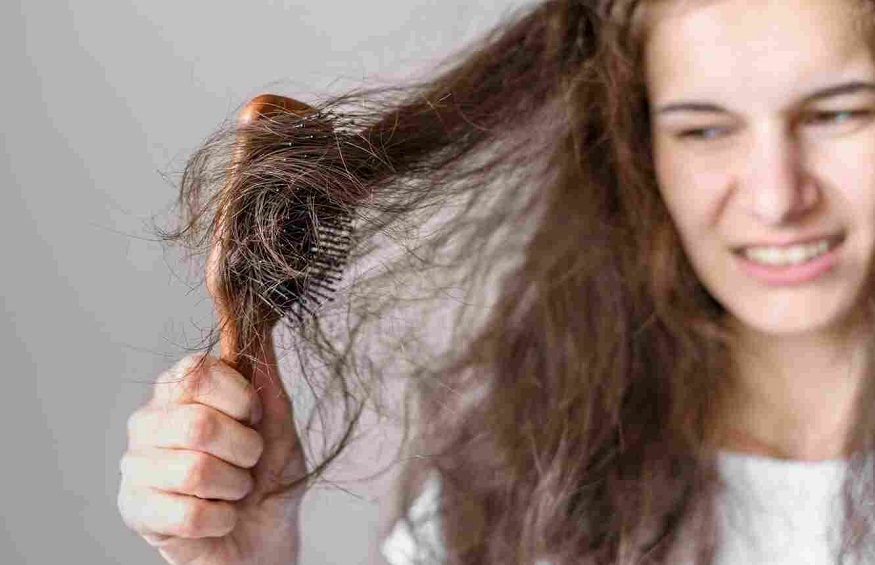
How Stress and Lack of Sleep Can Damage Your Hair
Have you ever noticed hair fall or more hair fall than usual whenever you’re stressed or haven’t had enough sleep? If so, you’re not alone. Many of us have experienced this phenomenon, and there is indeed a connection between stress, lack of sleep, and hair damage. In today’s fast-paced world, where stress seems omnipresent, and getting quality sleep can be a challenge, it’s essential to recognise the impact these factors can have on the health of your hair.
How Does Lack of Sleep and Stress Lead to Damaged Hair?
When it comes to understanding how stress and lack of sleep can wreak havoc on your hair, it’s crucial to delve into the underlying mechanisms. Here’s a breakdown of how both conditions contribute to damaged hair:
- Hormonal Imbalance: Stress triggers the release of hormones like cortisol, which can disrupt the hair growth cycle, leading to weakened hair follicles and increased hair shedding.
- Reduced Blood Circulation: Stress constricts blood vessels, decreasing blood flow to the scalp, and depriving hair follicles of essential nutrients and oxygen, resulting in brittle, fragile hair.
- Increased Inflammation: Both stress and lack of sleep can lead to inflammation in the body, including the scalp, which can disrupt the hair follicles’ ability to produce healthy hair strands.
- Nutrient Depletion: Stress and sleep deprivation can deplete vital nutrients in the body, such as vitamins B and D, iron, and zinc, which are essential for maintaining strong, resilient hair.
- Disrupted Hair Growth Cycle: Lack of sleep can disrupt the natural hair growth cycle, leading to premature hair shedding and slower hair regrowth, ultimately resulting in damaged hair.
Understanding these underlying mechanisms is crucial for recognising the importance of managing stress and prioritising sleep for maintaining healthy hair.
Tips to Manage Stress and Sleep to Minimise Hair Damage
Now that we understand how stress and lack of sleep can contribute to hair damage, let’s explore some practical tips to manage these factors and promote hair health:
- Incorporate stress-relief techniques into your daily routine, such as meditation, deep breathing exercises, or mindfulness practices, to help reduce cortisol levels and promote relaxation.
- Create a consistent sleep schedule by going to bed and waking up at the same time each day, even on weekends, to regulate your body’s internal clock and improve sleep quality.
- Reduce your intake of caffeine and alcohol, especially in the hours leading up to bedtime, as they can disrupt sleep patterns and contribute to hair damage.
- Create a conducive sleep environment by keeping your bedroom dark, quiet, and cool, and invest in a comfortable mattress and pillows to promote restful sleep.
- Incorporate a damage repair shampoo like the Bain Décalcifiant Réparateur Shampoo into your hair care routine to nourish and strengthen your hair, repairing any damage caused by stress and lack of sleep.
- Take time for self-care activities that promote relaxation and well-being, such as indulging in a warm bath, practising yoga or tai chi, or enjoying a soothing cup of herbal tea before bedtime.
Stress and lack of sleep can take a toll on your hair health, leading to damaged hair. By understanding the underlying mechanisms and implementing practical tips to manage stress and improve sleep quality, you can minimise hair damage and promote healthier, stronger hair. Remember to prioritise self-care and invest in quality hair care products like a good quality damage repair shampoo to nourish your hair from root to tip. With the right approach, you can maintain beautiful, resilient hair despite life’s daily stresses.


